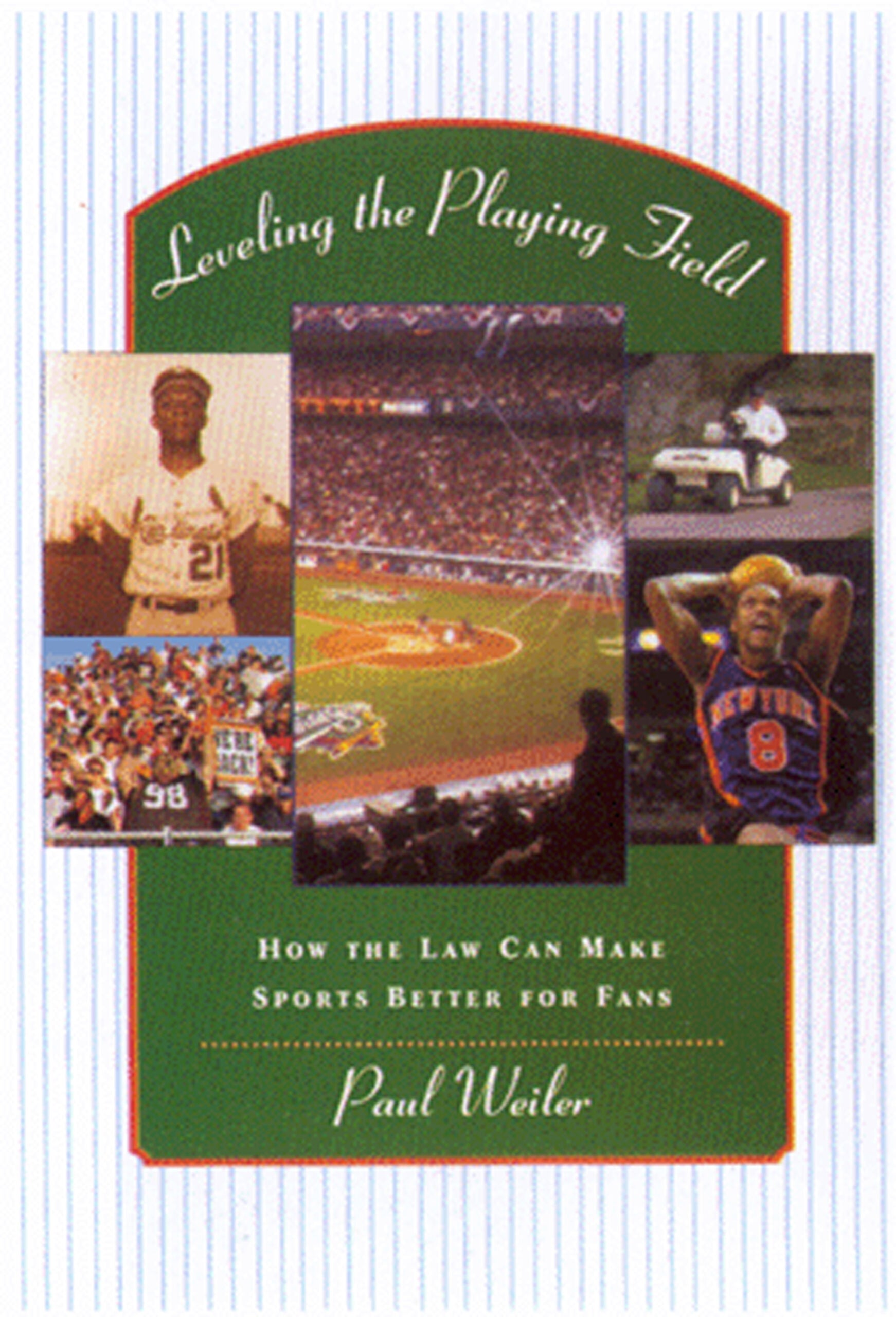
Credit: John Chapin Professor Paul Weiler
Professor Paul Weiler LL.M. ’65 scores one for sports fans in his new book Leveling the Playing Field: How the Law Can Make Sports Better for Fans (Harvard University Press, 2000). Airing his views on the appropriate penalties for sports gambling, drug use, and domestic abuse, Weiler tackles the moral issues surrounding the many athletes who run afoul of the law. He also looks at the legal and economic factors that drive the professional leagues, from free agency to revenue sharing to salary caps. And, in the following excerpt, Weiler proposes a different kind of cap to serve sports fans, calling on Congress to “pass a law that bars the use of any tax funds to build new facilities for professional sports.”
“The economic mistake does not consist in a team’s moving from one city to another where the owner and the league believe there is greater untapped fan interest. The overall level of sports welfare was enhanced when, after the Browns began playing in Cleveland in 1946 (in the AAFC), that city’s NFL Rams moved out to Los Angeles and took major league sports to the West Coast for the first time. It was likewise good for sports in America when the Brooklyn Dodgers left three-team New York City to introduce major league baseball to California ‹ especially since Los Angeles (unlike New York) was prepared to allow Walter O’Malley to build and pay for a new Dodgers Stadium himself. And even I, born and brought up in Canada, admit that it was good for the NHL to allow Winnipeg’s Jets to move south to the Phoenix area, where there are far more people available ‹ including Canadians on winter holidays ‹ to pay to watch the games.
The true economic problem is that so many of our scarce taxpayer dollars are being spent to facilitate consumption in the sports branch of our leisure life, rather than on more productive investments such as the effective education of our children. It is time that both politicians and voters start listening to independent economists rather than to team consultants, and realize that the presence of a professional team in a stadium has no more economic impact on an area than the presence of a movie theater megaplex.
One important element of the social problem is that it is ordinary Americans who are putting up the money (via regressive sales taxes) to build the luxurious new ballparks, and yet in these ballparks, by contrast with movie theaters, the vast majority of attractive seats are reserved for the affluent Americans who can afford the steep ticket prices. Another element is that, by contrast with any revenue that public authorities may collect from publicly owned parks (or concert halls or art museums), the revenue flowing into professional sports ends up in the pockets of highly paid players and extremely wealthy owners. And we should all have learned from the steep rise in the overall revenues generated by our more and more appealing sports that more than enough private money is now available to build any needed professional sports facility.
Understanding the nature of this problem is, admittedly, a rather difficult challenge. But once we grasp these key features of the present-day sports world, the solution is clear. America needs to establish a stadium cap that will replace the current spiral in stadium taxes.”
From Leveling the Playing Field: How the Law Can Make Sports Better for Fans. Copyright © 2000 by the President and Fellows of Harvard College. Reprinted by permission of Harvard University Press.
